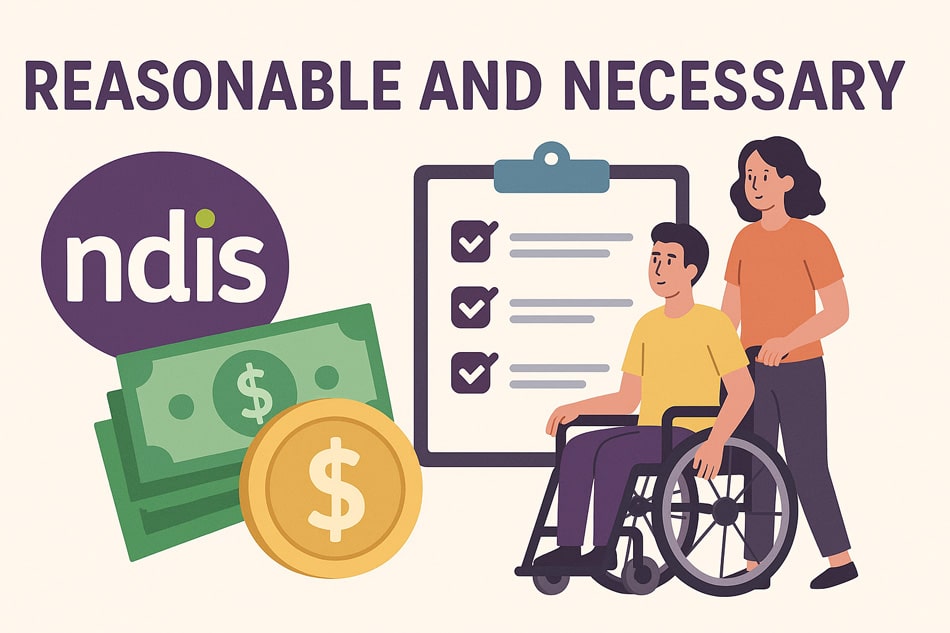Understanding “Reasonable and Necessary” Supports under the NDIS
Under Section 34 of the NDIS Act, the National Disability Insurance Scheme (NDIS) outlines the criteria used to decide which supports are considered reasonable and necessary for funding.
What does “Reasonable and Necessary” actually mean?
The NDIS can cover a wide variety of supports and services, from assistance with education and employment to independence, social participation, daily living, and overall wellbeing.
Essentially, the Scheme funds supports that help participants:
- work towards their personal goals and aspirations
- build and maintain independence
- take part in work, study, and community life
- strengthen their capacity to participate fully in society
When deciding whether a support meets the reasonable and necessary test, the NDIS also looks at the informal support networks (like family or friends) and formal systems (such as education or healthcare) already in place.
How to Know if a Support is Reasonable and Necessary
Every support included in your NDIS plan must meet the reasonable and necessary criteria. If you can confidently answer “yes” to the following questions, the support is likely to be approved — provided it aligns with your plan goals.
- Does it help you achieve your NDIS goals?
The support should directly relate to your disability and the goals listed in your plan’s budget. - Is it cost-effective and good value?
The NDIS looks at whether the support offers reasonable value compared with other options — balancing both cost and benefit. You might choose cheaper supports to stretch your funding further, or pay a little more for higher-quality assistance. - Can it fit within your plan budget?
Your NDIS funds need to last for the duration of your plan. Budgeting early helps you track spending and adjust your supports as needed. - Will it enhance your participation and relationships?
Supports should make it easier for you to connect with others, reduce barriers to participation, and strengthen your involvement in community, social, or work life. - Is it something the NDIS — not another service — should cover?
The NDIS won’t duplicate services provided by other government systems such as health, education, housing, or transport. - Is it safe and beneficial?
The support must be lawful, appropriate, and not cause harm or pose risk to you or others.
What the NDIS Won’t Fund
Certain supports are excluded under the NDIS Act and associated Rules. A support will not be funded if it:
- isn’t related to your disability
- duplicates another funded support
- covers everyday living expenses unrelated to your disability needs
- could cause harm or risk to you or others
“Would We Fund It?” — Common Examples
The NDIS provides a guide called “Would We Fund It?” that explores frequently requested items and explains how funding decisions are made. It offers examples and reasoning for whether a particular item would typically be approved. New examples are added as they’re developed.
Read more about “Would We Fund It?” on the NDIS website.
References:
Would you like me to make this read more naturally for a participant-friendly blog post (less formal and more conversational), or keep it in NDIS information page style?



